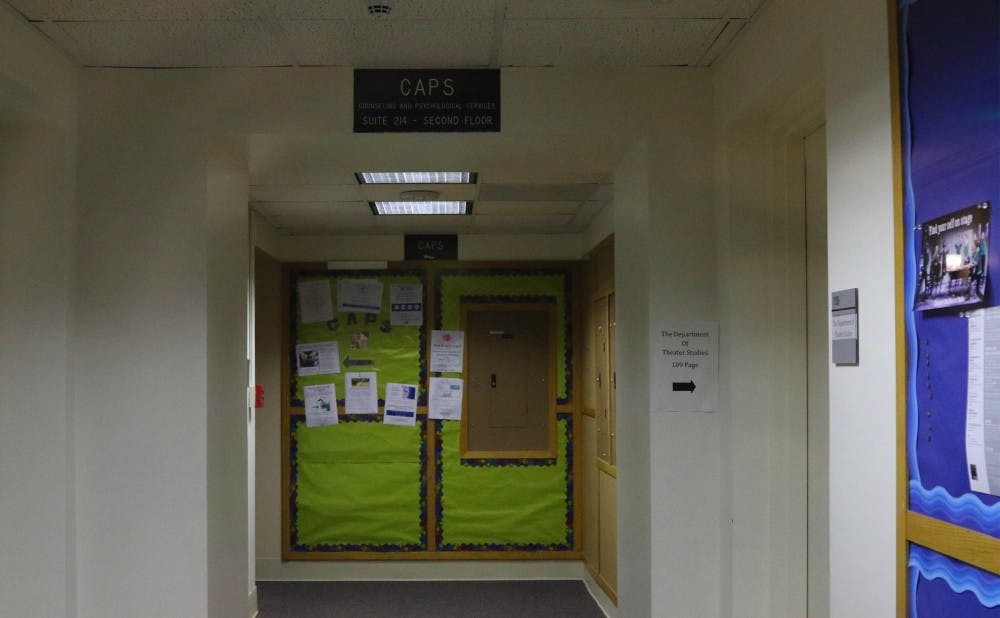For students seeking help with mental health issues, student-run organizations are increasingly providing support.
Recently, the number of student groups created to address issues involving mental health has risen. These efforts—such as Peer for You, You’re Not Alone and the Me Too campaign—are working to create a more inclusive campus climate. Gary Glass, associate director for outreach and developmental programming for Counseling and Psychological Services, said that he has seen significant changes in attitudes toward mental health in his time at Duke.
“It’s almost a completely different place,” he said. “Starting around five or six years ago, we started to see the campus environment really move towards being a more supportive, more empathic community.”
He noted that mental health has received wider attention nationally over the past three or four years because the issue is becoming increasingly significant.
“The conversation is that college students are suffering from more distress, more psychological disorders, seeking services in greater numbers and with greater severity,” he said.
However, Glass said that he thinks these higher numbers may be the result of students increasingly seeking resources because of reduced stigma surrounding mental health, which was not the case several years ago.
For instance, the idea of “effortless perfection” was widespread when he first arrived on campus in 2006, he said. He explained that even though this concept still exists today, he does not think it is as pervasive as in the past.
“There was such a taboo on vulnerability. Not just concerning mental health problems, but concerning any struggle, period,” he said.
Glass noted that previously no student groups addressed these issues but that many exist on campus today to help students with their problems. He explained that he spends a greater amount of time providing consultation to these groups—such as “No, Really?”, a campaign sponsored by the Duke Chapter of the NAACP and the National Alliance on Mental Illness.
Sophomore Khalouk Shahbander, the president and founder of NAMI, said the group hopes to de-stigmatize the concept of mental health and help students realize that it is normal to not be “mentally healthy.”
“Normal isn’t normal anymore,” he said. “There’s really been a lag between reality and what students think can and can’t affect them mentally.”
To remedy this, NAMI is working to collect data on student experiences on campus with mental heath and CAPS, which they will use to suggest recommendations for the University. In addition, they are preparing their first mental health week to be held in November as a fundraising event to increase awareness of mental health issues.
Glass explained that the key to giving students confidence is to let them know their struggles are shared by their peers.
“The reality that students often believe that their struggle is uncommon—even if they intellectually know that other students are struggling,” he said. “To encounter those students is what really makes a whole world of difference.”
Several students noted that they have seen changes in how people on campus regard mental health issues.
Sophomore James Brooks wrote in an email that he thinks attitudes about mental health need to be improved and that this is finally starting to happen.
Even though some people would prefer not to talk about mental health issues, many resources on campus are available for students facing these problems, noted sophomore Luke Duchemin in an email.
“There are people who will listen, and who are equipped to engage in this type of service,” he said. “There are also students just as ready and willing to walk with you through your struggles on this campus.”

